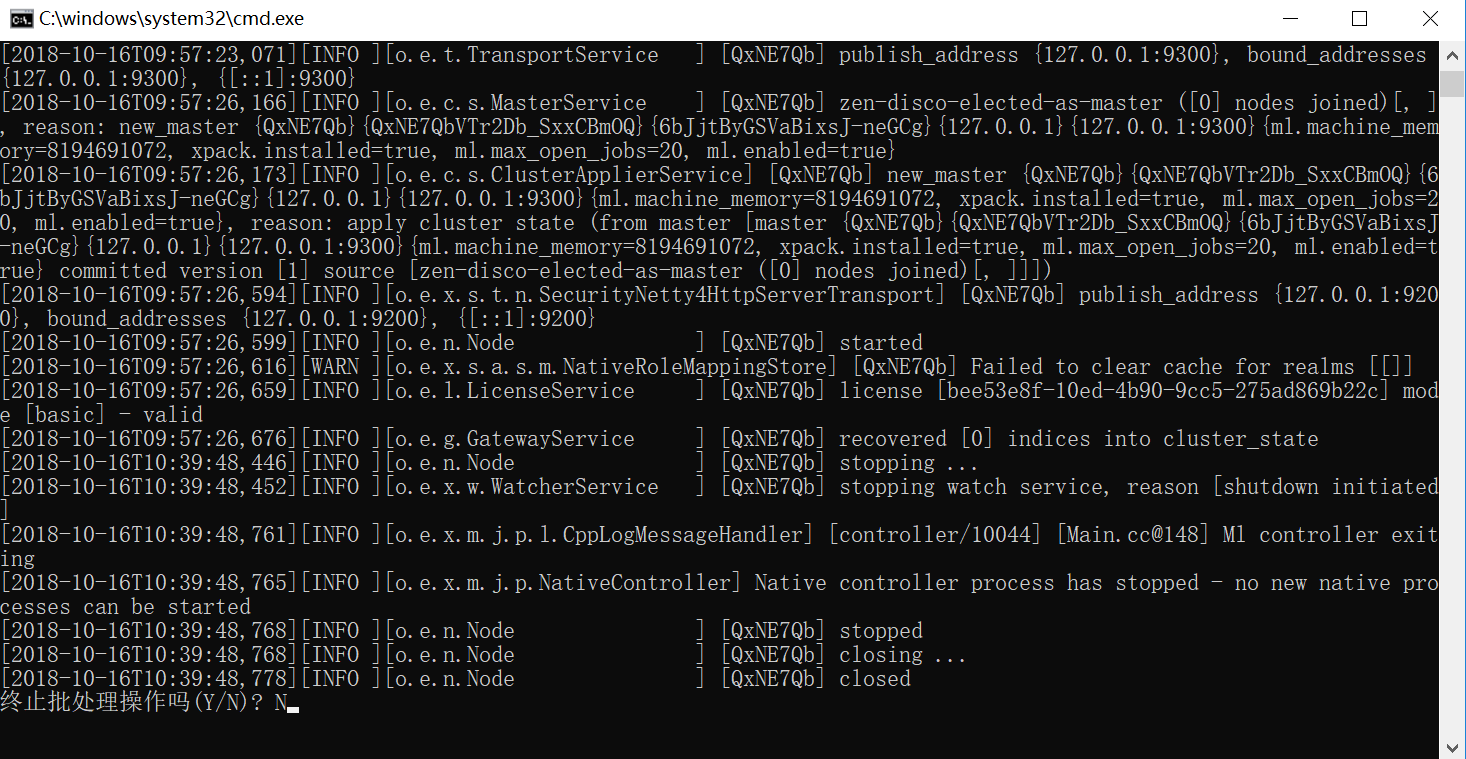

- #Install filebeats elastic search install
- #Install filebeats elastic search 64 Bit
- #Install filebeats elastic search download
Logstash allows you to process and ingest the data in to Elasticsearch.
#Install filebeats elastic search install
To display the status page, go to the url Install Logstash (optional) To verify the installation, point your web browser at which should display the Kibana home page. To install Kibana from the debian package, runĬonfigure Kibana to start automatically on boot.
#Install filebeats elastic search download
Visit Kibana Downloads page to check the latest version and get the download URL to use the curl command above. The download may take few minutes as it is quite big in size. Follow these steps to install and configure Kibana on Ubuntu and other Debian-based systems. It acts like a front-end for Elasticsearch. The job for Kibana in the Elastic stack is to visualize the data. You must use the same name that you use in node.name setting. Ĭluster.initial_master_nodes: List of nodes whose votes will be used for electing a cluster master initially. Default is /var/log/elasticsearchĭed_hosts: List of other nodes in the cluster that are master-eligible and can be used to seed the discovery process. Path.logs: Path to the log files directory. Default is 9200.Ĭluster.name: Name for your Elasticsearch cluster. If you want Elastic search service to listen to all IP address on your machine then set this to 0.0.0.0 You need to have root privilege to edit this file. All of these settings discussed below are in the config file /etc/elasticsearch/elasticsearch.yml. Here are some of the basic settings you may be interested in changing. Key folders and files /usr/share/elasticsearchĬonfig file for node and cluster configuration. "minimum_index_compatibility_version" : "6.0.0-beta1" "minimum_wire_compatibility_version" : "6.8.0", "cluster_uuid" : "eC6pyh_3Sku5AFMEKpgjcw", To verify installation is successful, runĬurl which should return something like this: Sudo dpkg -i elasticsearch-7.4.bĬonfigure Elasticsearch service for auto-start. Run the following command to install the Debian package that you've downloaded.
#Install filebeats elastic search 64 Bit
Visit the Elasticsearch downloads page to check the latest version and the download URL for the Deb 64 bit package. Installing and Configuring Elastic SearchĪt the core of the Elastic Stack is the Elastic Search, which can store, search, and analyze data that is of any type, whether it is text, numerical, or geospatial.įollow these steps to install and configure Elastic Search on a Ubuntu or Debian based system.ĭownload the Debian package for the latest version of Elasticsearch.

The same steps could be applied to any Debian based system. This article guides you through the installation and basic configuration of ELK stack on an Ubuntu machine. These products when put together allows you to ingest data that is structured or unstructured, explore and analyse those data and visualize it in real time.

Ps aux | grep $(cat /var/run/elasticsearch/elasticsearch.The Elastic Stack also known as the ELK stack consists of Elastic Search, Kibana, Beats and Logstash. To check if elasticsearch has been started: (Then adjust the following line as follows) (add the following line at the beginning) Successfully created system startup script for Logstash Using provided startup.options file: /etc/logstash/startup.options Mv /etc/filebeat/filebeat.yml /etc/filebeat/ĭownload logstash debian install package and configure it Save the repository definition to /etc/apt//elastic-5.x.list:Įcho "deb stable main" | sudo tee -a /etc/apt//elastic-5.x.listįilebeat reads lines from defined logs, formats them properly and forwards them to logstash while maintaining a non-clogging pipeline stream Java HotSpot(TM) 64-Bit Server VM (build 25.144-b01, mixed mode)įacilitate updating of all packages via APT repositories Java(TM) SE Runtime Environment (build 1.8.0_144-b01) Apt-get install python-software-properties software-properties-common


 0 kommentar(er)
0 kommentar(er)
